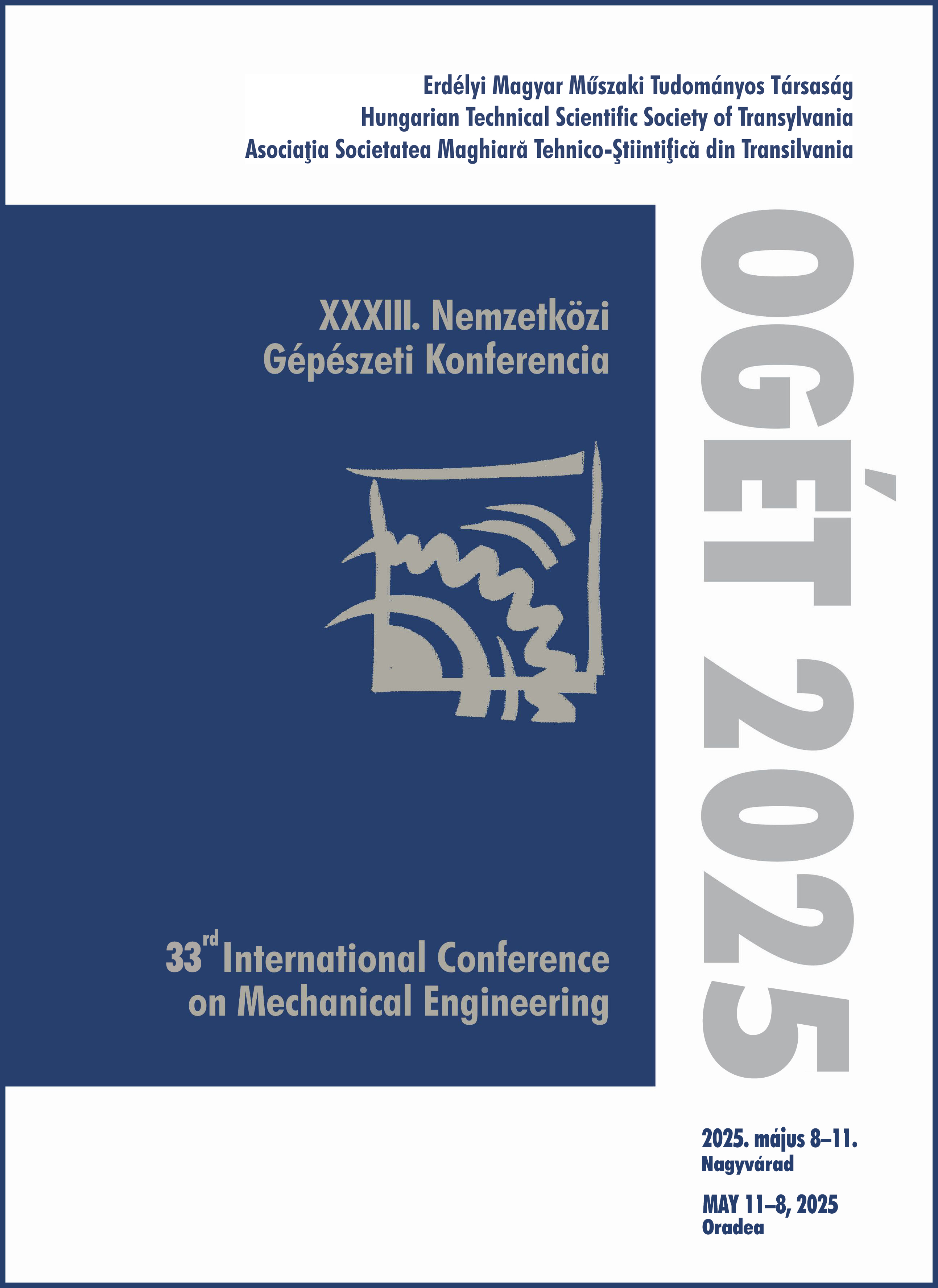ESG-rendszerek és logisztika kapcsolata
The relationship between ESG systems and logistics
Keywords:
ESG, logistics, LCA, recycling, /, logisztikaAbstract
The emergence of the ESG (Environmental, Social, Governance) framework offers an integrated approach that enables the coordinated management of environmental, social and corporate governance aspects, thereby contributing to ensuring the long-term sustainability and competitiveness of companies. The ESG framework, as an approach integrating environmental, social and corporate governance aspects, forms the basis of sustainability research. The logistics application of ESG aspects not only helps to achieve sustainability objectives, but also contributes to increasing economic performance ((Carbone & Moatti, 2021 [4]). Recycling processes and life cycle assessment (LCA) are key elements in the practical implementation of ESG goals, enabling the reduction of environmental impacts of supply chains and long-term sustainability strategic planning. Logistics processes, as functions forming the backbone of the global economic system, play a key role in the implementation of sustainability goals. Optimizing supply chains, operating transport networks in an energy-efficient manner, and integrating waste management strategies have significant potential to reduce the environmental footprint. Recycling and the application of Life Cycle Assessment (LCA) play a particularly important role in these processes, as they provide an opportunity to evaluate and develop logistics chains from a comprehensive sustainability perspective.
Kivonat
Az ESG (Environmental, Social, Governance) keretrendszer megjelenése olyan integrált megközelítést kínál, amely lehetővé teszi a környezeti, társadalmi és vállalatirányítási szempontok összehangolt kezelését, ezáltal hozzájárulva a vállalatok hosszú távú fenntarthatóságának és versenyképességének biztosításához. Az ESG keretrendszer a környezeti, társadalmi és vállalatirányítási szempontokat integráló megközelítésként a fenntarthatósági kutatások alapját képezi. Az ESG szempontok logisztikai alkalmazása nemcsak a fenntarthatósági célkitűzések megvalósítását segíti elő, hanem a gazdasági teljesítmény növeléséhez is hozzájárul ((Carbone & Moatti, 2021 [4]). A recycling folyamatok és az életciklus-szemlélet (LCA) pedig az ESG célok gyakorlati megvalósításának kulcsfontosságú elemei, lehetővé téve az ellátási láncok környezeti hatásainak csökkentését és a hosszú távú fenntarthatósági stratégiai tervezést. A logisztikai folyamatok, mint a globális gazdasági rendszer gerincét alkotó funkciók, kulcsfontosságú szerepet töltenek be a fenntarthatósági célok megvalósításában. Az ellátási láncok optimalizálása, a szállítási hálózatok energiahatékony működtetése, valamint a hulladékgazdálkodási stratégiák integrálása jelentős potenciállal rendelkeznek a környezeti lábnyom csökkentése terén. E folyamatok során különösen fontos szerepet kap a recycling és az életciklus-szemlélet (Life Cycle Assessment, LCA) alkalmazása, amelyek lehetőséget nyújtanak a logisztikai láncok átfogó fenntarthatósági szempontú értékelésére és fejlesztésére.
References
Azzi, A., Battini, D., & Faccio, M. (2020). A framework for sustainable supply chain optimization: Integrating blockchain and predictive analytics. Journal of Cleaner Production, 252, 119643. https://doi.org/10.1016/j.jclepro.2019.119643
Banerjee, S., & Van der Laan, E. (2019). Green logistics and corporate sustainability performance. Journal of Operations Management, 65(3), 180–197. https://doi.org/10.1016/j.jom.2018.11.002
Baumann, H., & Tillman, A.-M. (2019). The Hitchhiker’s Guide to LCA: An Orientation in Life Cycle Assessment Methodology and Application. Springer. https://doi.org/10.1007/978-94-024-0941-1
Carbone, V., & Moatti, V. (2021). ESG reporting and supply chain transparency: The role of digital transformation. Supply Chain Management Review, 27(4), 16–25.
Cruz, J. M., Matsypura, D., & Olivera, F. (2017). A multi-period logistics network redesign model for managing sustainable systems. European Journal of Operational Research, 257(2), 643–657. https://doi.org/10.1016/j.ejor.2016.09.063
Cservenák, Á. (2019) Mobil robot mozgásának vezérlése, Multidiszciplináris tudományok 9 (4), 438-443, https://doi.org/10.35925/j.multi.2019.4.45
Cservenák, Á. (2021) Simulation of a mobile robot's motion; Academic Journal of Manufacturing Engineering 9, 80-88 https://ajme.ro/PDF_AJME_2021_1/L12.pdf
Friede, G., Busch, T., & Bassen, A. (2015). ESG and financial performance: Aggregated evidence from more than 2000 empirical studies. Journal of Sustainable Finance & Investment, 5(4), 210–233. https://doi.org/10.1080/20430795.2015.1118917
Geissdoerfer, M., Savaget, P., Bocken, N. M., & Hultink, E. J. (2017). The Circular Economy–A new sustainability paradigm? Journal of Cleaner Production, 143, 757–768. https://doi.org/10.1016/j.jclepro.2016.12.048
Gu, F., Guo, J., Zhang, W., Summers, P. A., & Hall, P. (2020). From waste plastics to industrial raw materials: A life cycle assessment of mechanical plastic recycling practice based on a real-world case study. Science of the Total Environment, 723, 138062. https://doi.org/10.1016/j.scitotenv.2020.138062
Kolk, A., & Pinkse, J. (2015). Multinationals’ Political Activities on Climate Change. Business & Society, 54(2), 183–213. https://doi.org/10.1177/0007650312439088
Lee, C., Zhang, Y., & Su, H. (2020). Integrating ESG principles in supply chain management: A case study on logistics. International Journal of Sustainable Logistics, 13(2), 91–110. https://doi.org/10.1108/IJSL-01-2020-0004
Liu, Y., Zhang, W., & Wang, X. (2020). Reverse logistics and its impact on ESG performance in the manufacturing industry. Sustainability, 12(8), 3278. https://doi.org/10.3390/su12083278
McKinsey & Company. (2023). The economic impact of sustainable supply chains: Unlocking competitive advantages. https://www.mckinsey.com
Paulraj, A., Chen, I. J., & Blome, C. (2017). Understanding the relationships between environmental collaboration, supplier development practices, and performance outcomes. Journal of Supply Chain Management, 53(4), 82–105. https://doi.org/10.1111/jscm.12146
Santos, J. R., Faisca, C., & Costa, C. (2022). Enhancing Green Logistics Networks with Decentralized Recycling Facilities. Journal of Cleaner Production, 331, 129878. https://doi.org/10.1016/j.jclepro.2022.129878
Sarkis, J., Zhu, Q., & Lai, K.-H. (2022). Sustainable logistics and ESG integration in supply chains: Challenges and future research. Journal of Business Logistics, 43(1), 26–40. https://doi.org/10.1002/jbl.22321
World Bank. (2022). ESG principles in global logistics: A focus on developing economies. https://www.worldbank.org
Yadav, G., Singh, R., & Gunasekaran, A. (2021). Blockchain adoption for traceability in the supply chain: A literature-based framework and research agenda. Annals of Operations Research, 297(1), 285–312. https://doi.org/10.1007/s10479-020-03699-2
Zhao, R., Liu, Y., & Zhu, W. (2020). Circular Economy and Recycling Practices in Logistics Systems. International Journal of Production Research, 58(7), 1968–1987. https://doi.org/10.1080/00207543.2019.1673987


